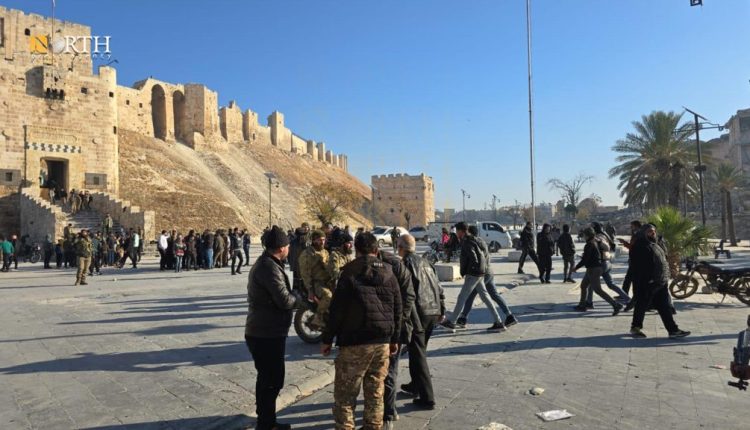Political Stalemate Behind Escalating Aleppo and Idlib Violence, Analyst Says
Qamishli, Syria – Rami Al-Shaer, a political analyst close to the Russian Foreign Ministry, has attributed the recent escalation in Aleppo and Idlib to Damascus’s reluctance to initiate a peaceful political transition.
“The Syrian government’s procrastination in launching a political process has directly contributed to the latest violence in northern Syria,” Al-Shaer told North Press on Saturday.
For the past four days, Hayat Tahrir al-Sham (HTS), formerly known as Jabhat al-Nusra, alongside Turkish-backed factions, has launched an offensive targeting northern and southern Aleppo countryside as well as parts of Idlib. These forces have reportedly captured several areas in Aleppo city, heightening tensions across the region.
Moscow’s Position on the Crisis
The Kremlin has underscored its support for Syrian sovereignty amidst the clashes. On Friday, Dmitry Peskov, the Russian presidential spokesperson, expressed hope for a swift restoration of constitutional order in Aleppo.
Al-Shaer highlighted Moscow’s efforts through the Astana talks to enforce a ceasefire across Syria as a precursor to a political transition in accordance with UN Resolution 2254. “However, Damascus has stalled progress on this issue,” Al-Shaer said.
Impact of Turkish-Syrian Tensions
Al-Shaer pointed to the Syrian government’s hesitance to engage in dialogue with Turkey and accept President Recep Tayyip Erdoğan’s proposal for direct talks with Syrian President Bashar al-Assad. “This failure to engage has led to the current deterioration, and the situation may worsen further,” he warned.
He emphasized that a Syrian-Syrian dialogue and immediate steps toward political transition are critical to resolving the crisis.
Russian Intervention Unlikely
Addressing the possibility of Russian military intervention in Aleppo, Al-Shaer dismissed such prospects. “Russia will only act against internationally recognized terrorist organizations, but it will not intervene in the latest clashes,” he clarified.
A Broader Context of Conflict
The ongoing offensive by HTS and Turkish-backed factions underscores the deepening complexities of Syria’s civil war. Despite international agreements, including the 2020 Moscow-brokered ceasefire, northern Syria remains a flashpoint where geopolitical rivalries intersect with local insurgencies.
Observers note that the recent violence threatens to derail diplomatic efforts, leaving civilians to bear the brunt of the conflict. Thousands have been displaced in Aleppo and Idlib, with urgent humanitarian needs escalating by the day.
As northern Syria teeters on the brink of further instability, analysts like Al-Shaer stress that only an inclusive political resolution can pave the way for lasting peace in the war-torn country.

